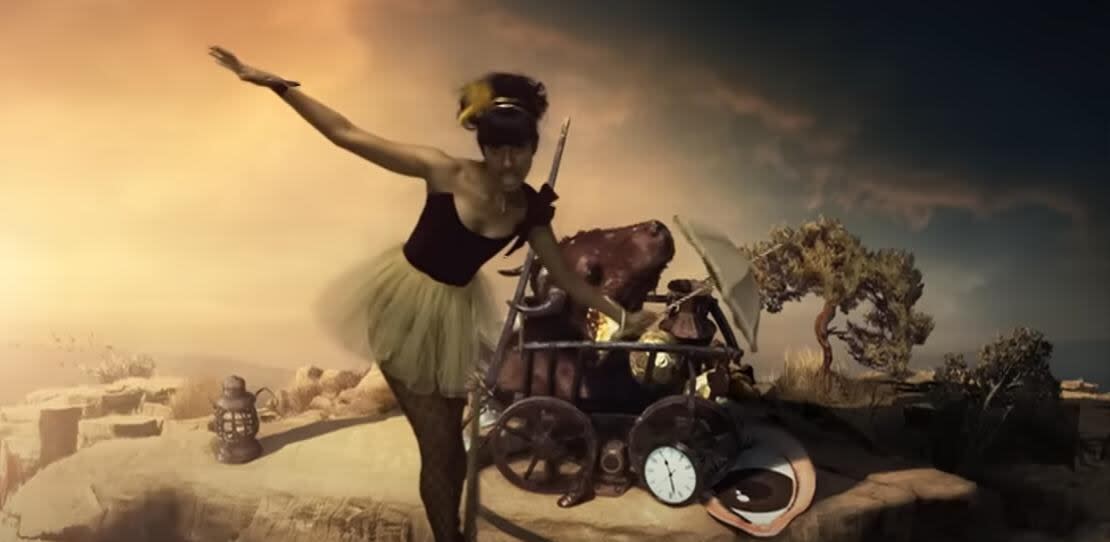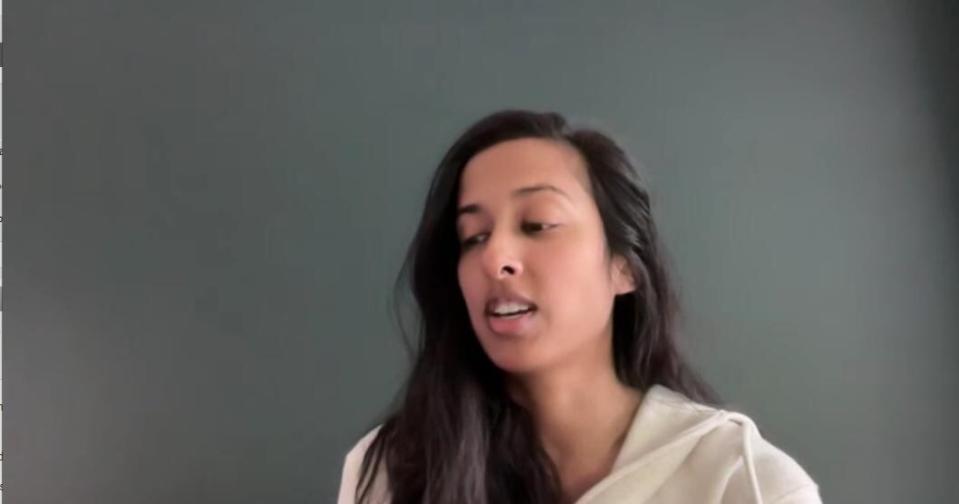Toronto singer reclaims remix that went viral

When Toronto singer Anjulie Persaud scrolled through her TikTok in November 2022, a particular sound caught her attention — the voice in it was her own.
Persaud, who goes by the stage name Anjulie, released her first single, Boom, in 2009.
The TikTok sound, named Boom Cha La Ka Dance, was posted by a user called LEA. CBC Toronto has reached out to LEA twice via email seeking comment.
The sound features Persaud's vocals, pitched down and sped up, over a new slap house beat. It went viral, racking up millions of views. Currently, 3.6 million TikToks use the uncredited remix.
"At the beginning I was so excited. I was like, 'Oh, this is the app that's breaking artists, and I have a song that's so big on there,'" Persaud said.
But after attempts to reach out to TikTok user LEA went unanswered, her enthusiasm turned sour. Without Persaud's name on the sound title, TikTok users were unlikely to know that she was the artist behind it — particularly as the sound appeared to go viral in Asia, where she has little presence.
Last summer, Persaud began posting an ongoing series of videos to her TikTok page, explaining the remix and how it went viral without her.
Persaud explains her efforts to regain credit in one-such TikTok posted earlier this month that has since gone viral, viewed over two million times and commented on 1,800 times.
"A very good friend of mine who is a DJ, his manager texted me and said, 'why don't you steal the song back?'" she says in the TikTok.
This weekend Persaud said she plans to release her own remix in the hopes of finally getting credit.
"Take my voice, remix my voice, do whatever you want with it. But if it connects, include me," she said.
After Persaud began posting about the situation last summer, her followers sent her links to the full remix on YouTube, Spotify and other platforms. Republic Records and Sony Music Publishing, the labels the song was signed to, helped take down the remix on those platforms.
But Persaud wants to keep the remix on TikTok, where her music has connected with millions of users. That kind of popularity isn't common for independent artists like herself, she said.
"I know how much of catching lightning in a bottle a hit song is," she said.
Getting credit on TikTok
According to its website, TikTok doesn't allow users to post another person's copyrighted content "without proper authorization or legally valid reasons." TikTok users can report copyright infringement on the app or by completing an online form.
Persaud said she is in conversation with TikTok to see if the app can give her credit — as it has done in the past to identify remixed music — by adding a tag saying "contains music from [singer]s name]" to the sound.

Persaud decided to release her own remix of Boom after a friend suggested that she 'steal the song back.' (Zoom)
Ideally, she said the tag would link to her new remix, but she said the conversations have been "fruitless."
TikTok has not responded to requests for comment from CBC Toronto.
Easier to ask for forgiveness, says lawyer
Music sampling can be considered copyright infringement, said Stephen Selznick, a lawyer who specializes in intellectual property and entertainment law, and a partner with Cassels Brock & Blackwell.
"Unfortunately," he said, "it does not dissuade a lot of people from doing it, because sometimes, it's easier to ask forgiveness than permission."

Theoretically, for every user who listens to a song that infringes copyright, 'you have one less legitimate purchase,' said Stephen Selznick, a lawyer who specializes in intellectual property and entertainment law. (Zoom)
Theoretically, for every user who listens to a song that infringes copyright, "you have one less legitimate purchase," Selznick said.
While many social media platforms have internal mechanisms to take down obvious copyright infringement, Selznick said a user can easily save and repost material that has been removed.
"Often you're closing the barn door after the horse has left," he said.
LISTEN| How TikTok has caused a paradigm shift in the music industry:
This isn't the first time Persaud said she's been "ripped off."
"A lot of the time when things had happened in the past, I would just be like, 'That's how it goes, Anj. You signed up to be in this industry,'" she said.
However, she said the support she received after posting about the uncredited Boom remix has given her the confidence to release her own remix.
WATCH | Anjulie's original song, Boom, released in 2009:
Persaud collaborated with a music producer to keep the viral section similar to the uncredited remix ,while she added her own modifications, including bigger beat drops.
The creator of the uncredited remix could potentially bring their own copyright infringement case against Persaud after she releases her remix, but Selznick said such a case is unlikely to hold much weight considering the original infringement.
How listeners wind up responding to her next release is not, Persaud said, her top priority.
"The win, honestly, is not if this song is a really big hit," she said. "I want it to say my name."

